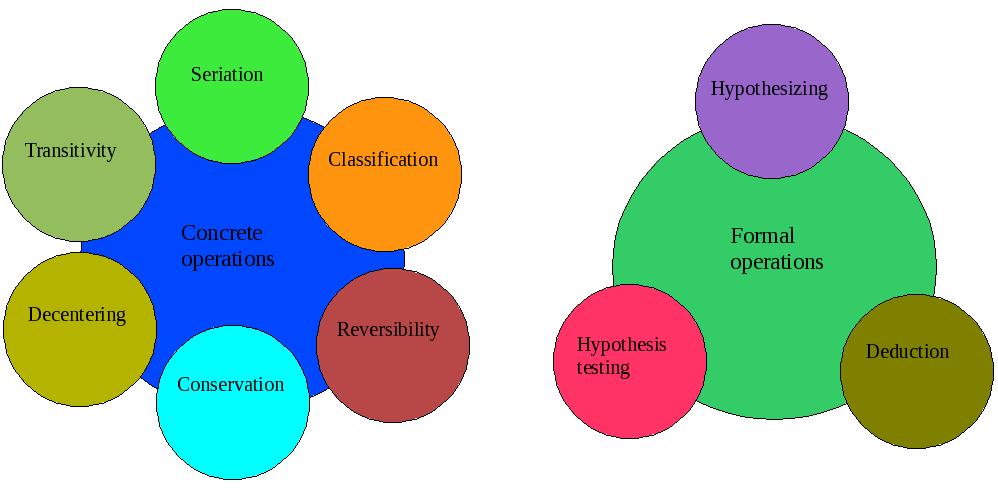Psychology is how individuals behave naturally, and how the individual copes with the world around them. In use here, Psychology does not take into consideration external factors causing behavioral changes that prevent an individual from evolving. Piaget’s Developmental Psychology is here provided as an overview of the stages.
| Stage 1 | Stage 2 | Stage 3 | Stage 4 | Stage 5 |
| Sensory Motor | Pre- Operational | Concrete Operations | Formal Operations | Meta Cognition |
| Movement / Senses | Motor Skills | Concrete | ||
| Egocentric | Magical Thinking | Logical | Abstract Reasoning |
Figure a. (Piaget 1980) Cognitive Developmental Psychology
Sensorimotor
Intelligence is present; the child learns by doing – looking, touching, sucking; motor activity but no symbols; knowledge is developing yet limited; knowledge is based on experiences/ interactions; mobility allows child to learn new things; the child has a primitive understanding of cause-and-effect relationships; some language skills are developed at the end of this stage.
Crisis – Object Permanence marks the end of the Sensorimotor stage. Objects not visible remain in the minds imagination even when out of view.
Pre Operational
Symbols or language skills are present including the use of letters and numbers; memory and imagination are developed; nonreversible and non-logical thinking; egocentric thinking predominates.
Crisis – Conservation marks the end of the pre operational stage
Concrete Operations
The child demonstrates conservation, reversibility, serial ordering, and a mature understanding of cause and effect; logical and systematic form of intelligence; manipulation of symbols related to concrete objects; operational thinking predominates nonreversible and egocentric thinking.
 Formal Operations
Formal Operations
Logical use of symbols related to abstract concepts including logic, deductive reasoning, comparison, and classification; egocentric thinking comes back early in this stage; formal thinking is uncommon.
Meta Cognition
Self-monitoring, self-representation, and self-regulation processes, which are regarded as integral components of the human mind. These processes participate in general intelligence, together with processing efficiency and reasoning, which have traditionally been considered to compose fluid intelligence.